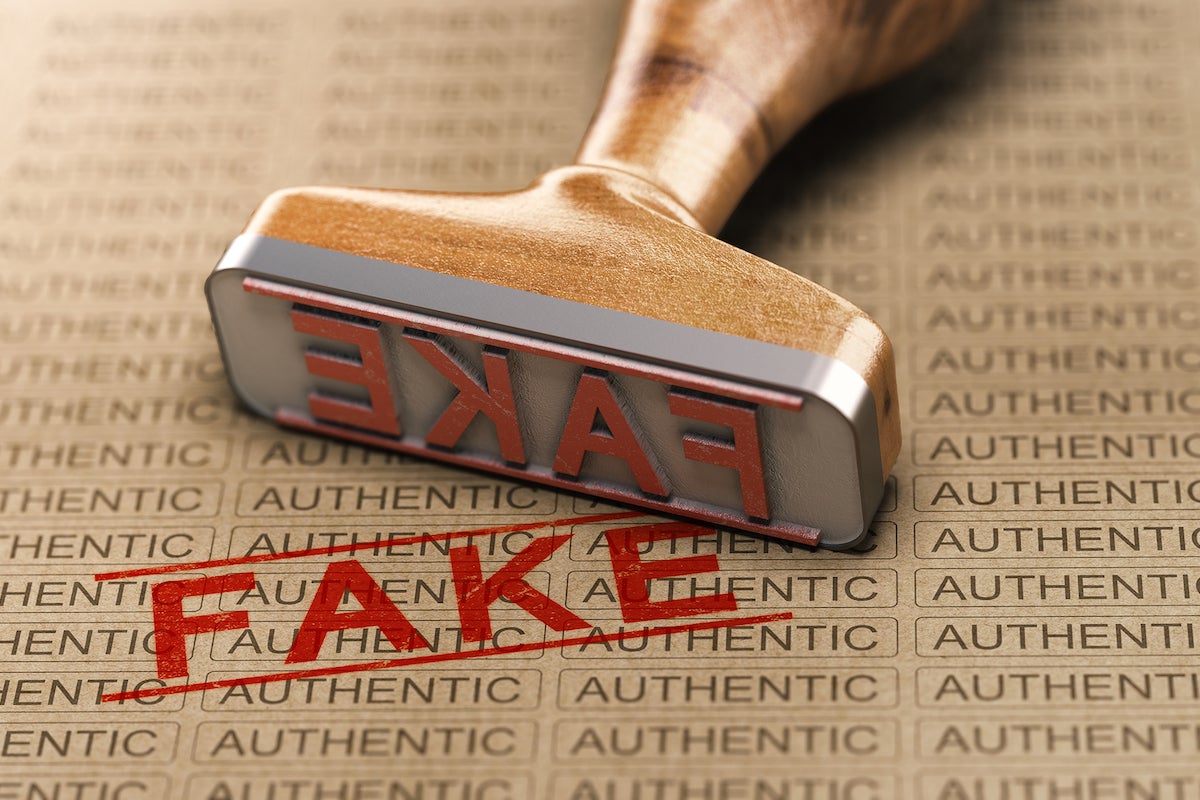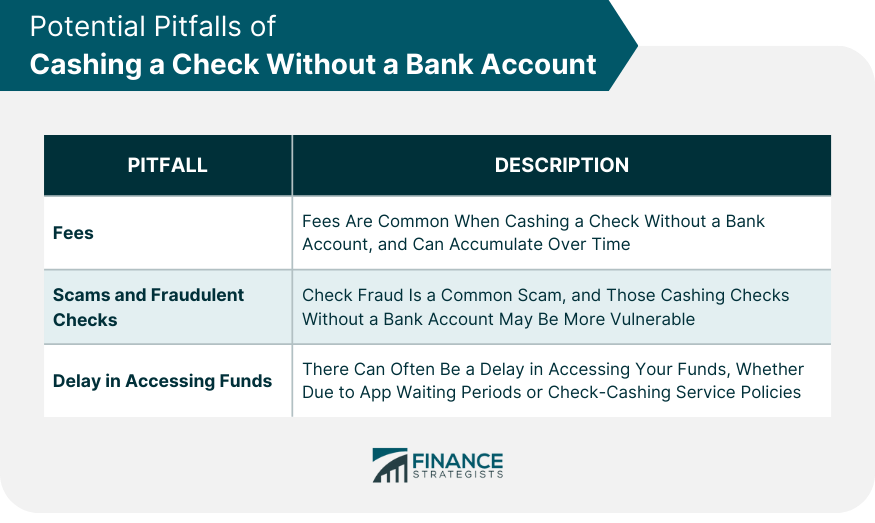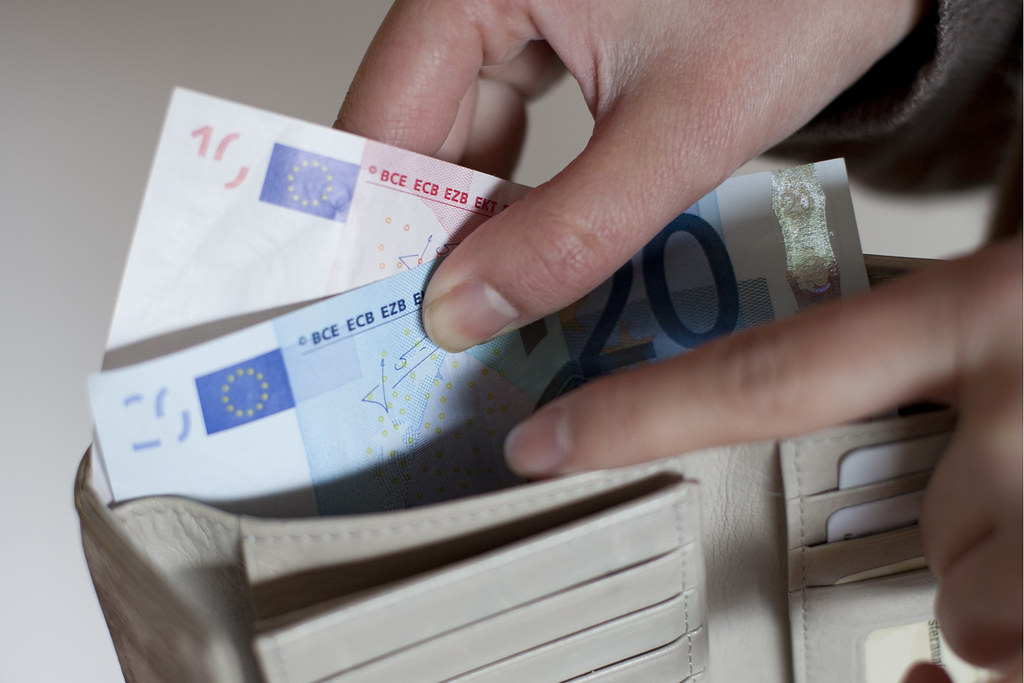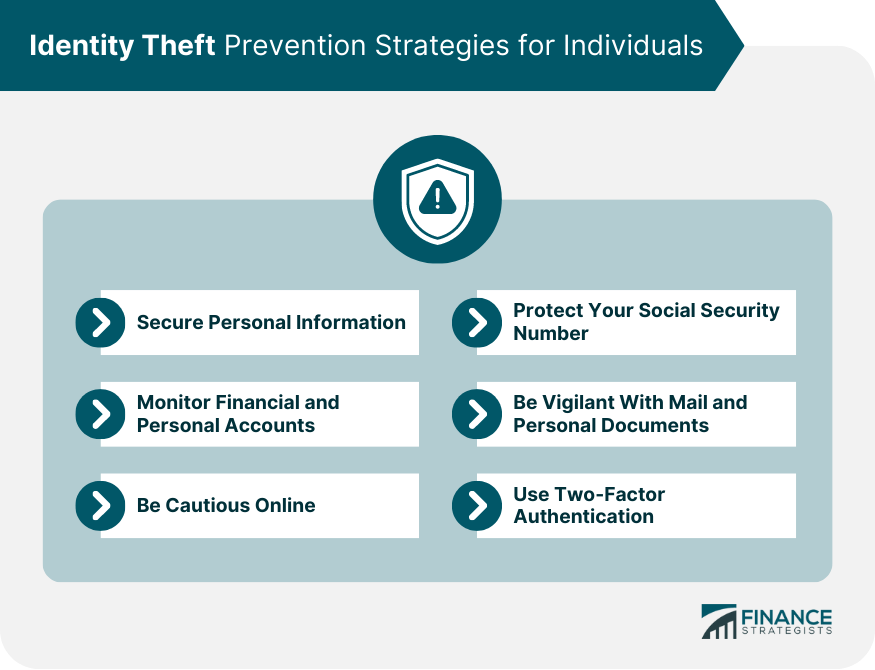Selling a used car can be a rewarding endeavor, often allowing individuals to recoup a significant portion of their investment while providing a new owner with a reliable vehicle. However, the private car market, while offering flexibility and potentially better returns than trade-ins, is unfortunately also a fertile ground for sophisticated scams. These fraudulent schemes can turn a seemingly straightforward sale into a costly and frustrating ordeal for unsuspecting sellers.
At Consumer Reports, our mission is to empower you with unbiased, well-researched information to navigate such transactions safely. We understand that selling your car can be stressful, and our goal is to lessen that stress by making you aware of the common pitfalls. Scammers are constantly evolving their tactics, becoming more creative and developing new ways to defraud individuals. By understanding these prevalent scams, you can equip yourself with the knowledge to spot and avoid them, focusing your attention instead on finding a legitimate buyer for your vehicle.
This in-depth guide is designed to act as your essential shield against fraud. We’ve meticulously compiled a list of 13 common scams that target private car sellers, drawing directly from expert insights and documented experiences. For each scam, we’ll break down its mechanics and, crucially, provide practical, actionable advice on how to identify its warning signs, allowing you to protect your assets and ensure a secure, transparent sale. Remember, if a deal feels like it isn’t right, it’s always best to walk away; a legitimate buyer will come along.

1. The Fake Cashier’s Check Con
One of the most insidious and increasingly common scams involves the use of counterfeit cashier’s checks. With advancements in printing technology and graphic design, these fake checks have become remarkably difficult to distinguish from genuine ones, even for trained eyes. Scammers rely on the perceived security and official nature of a cashier’s check to trick sellers into believing funds are secure when they are anything but.
The typical scenario unfolds when a prospective buyer presents a cashier’s check that appears to be from a reputable bank, often for the full amount or even slightly over the agreed-upon price. The scammer will pressure the seller to hand over the car’s title and keys immediately, asserting that the cashier’s check is as good as cash. However, days later, the seller discovers that the check is fraudulent, leaving them without the car and with a significant financial loss as their bank reverses the credit.
To safeguard against this prevalent scam, it is imperative to verify the authenticity of any cashier’s check before you proceed with the sale. Do not rely on the phone number printed on the check itself, as this could be part of the scam, directing you to an accomplice. Instead, independently search online for the official phone number of the issuing bank and call them directly to confirm the check’s legitimacy and that the funds are genuinely available. Cashing the check at the issuing bank itself is also advisable, as this can often ensure funds become available immediately and verify the check’s validity on the spot.
Ultimately, our recommendation is clear: do not sign over anything, especially the car title, until the money is unequivocally in your account and any payment has been fully verified and cleared. This crucial step prevents you from inadvertently giving away your vehicle for free. Even with careful verification, if you have any lingering doubts, it’s always safer to insist on an alternative, fully verifiable payment method.
Read more about: Walmart’s Red Sticker Mystery: Shoppers Decode the New Anti-Skimmer Tactic and How to Stay Safe

2. The Personal Check Pitfall
While personal checks are far less common today, they still pose a significant risk in private car sales. Unlike cashier’s checks, personal checks offer even less security for the seller, making them a prime tool for scammers. Most individuals writing personal checks are not malicious, but for high-value transactions like a car sale, accepting one from an unknown buyer introduces substantial vulnerability.
The primary danger with personal checks is that they can be canceled by the issuer after they have been written, and even after they have been deposited into your account but before they fully clear. This means a buyer could drive away with your car, cancel the check, and leave you with no payment and no recourse. Furthermore, there’s no immediate way to verify if the buyer actually has sufficient funds in their account to cover the check at the time of the transaction.
If you find yourself in a situation where a buyer insists on paying with a personal check, our advice is to exercise extreme caution. Under no circumstances should you hand over the car title or the vehicle itself until the funds have not only cleared your bank but are firmly established in your account. This process can take several business days, and patience is key. If the buyer expresses impatience or has a problem with this necessary waiting period, it should be a significant red flag.
In such cases, it is entirely reasonable to suggest more secure payment alternatives, such as a cashier’s check (with the verification precautions discussed above) or, ideally, an electronic funds transfer directly between banks that can be verified immediately. Prioritizing secure payment methods is paramount. Remember, you are not a financial institution, and it’s not your responsibility to extend credit or take on the risk associated with unverified personal checks. If a buyer is unwilling to accommodate these basic security measures, it’s best to consider other potential buyers.
Read more about: When Riches Collide with Reality: The 12 Worst Financial Mistakes Celebrities Make with Luxury Assets

3. The Overpayment & Shipping Ruse
This scam preys on a seller’s desire to complete a sale quickly and efficiently, often leveraging the allure of an offer slightly above the asking price. The overpayment scam is an increasingly popular tactic where a potential buyer sends a check—frequently a fraudulent cashier’s check or money order—for an amount greater than the car’s agreed-upon price. The buyer then contacts the seller, claiming an “accidental” overpayment or stating that the excess funds are intended to cover shipping costs for the vehicle overseas or across the country.
The scammer will then instruct the seller to deposit the large check and, upon seeing the balance temporarily reflected in their account, wire the “extra” money to a supposed shipping agent or directly back to the buyer. The crucial twist is that the original check sent by the buyer is fake. Once the seller wires the funds, the original check inevitably bounces, leaving the seller out of the money they sent to the “shipper” or buyer, in addition to losing their car if they transferred the title prematurely.
Spotting this scam requires vigilance. Firstly, be highly suspicious of any buyer offering to pay more than your asking price, particularly if they are not physically present to inspect the vehicle. Such offers almost always fall into the “too good to be true” category. Secondly, never, under any circumstances, agree to wire money to a third party or back to the buyer if you receive an overpayment, especially before the original payment has fully and irrevocably cleared your bank. Remember, genuine electronic payment systems like Zelle or Venmo deliver funds almost instantly; if you don’t see the money immediately in your account, it’s a major warning sign.
Our firm advice is to always wait until all payments are thoroughly verified and confirmed in your bank account before shipping any vehicle, especially if it’s going out of the country. If a buyer insists on such a complicated payment and shipping arrangement, it is a significant red flag, and you should politely decline the offer. Your priority should always be the secure and verified transfer of funds, not facilitating a buyer’s logistics with your own money.

4. The “Sight-Unseen” Offer (with dodgy payment)
An offer to purchase your vehicle sight-unseen, particularly from a buyer who is not local or cannot inspect the car, should immediately raise a red flag. While there can be legitimate reasons for such an offer, scammers frequently employ this tactic as a foundational step for larger fraud schemes. The core of this scam is the buyer’s willingness to commit to a purchase without a physical inspection, often accompanied by a fraudulent payment method or an elaborate pick-up plan.
In this scenario, a buyer might contact you expressing keen interest in your car, claiming they are out of town, incredibly busy, or trusting of your description and photos. They will then quickly move to discuss payment, often suggesting a personal check, cashier’s check, or even a wire transfer that may turn out to be fictitious. This haste, coupled with the lack of physical inspection, is a strong indicator of malicious intent. The scammer aims to create a sense of urgency and trust, hoping you’ll overlook crucial verification steps.
One common variant involves the buyer arranging for a third party—a “shipper” or “agent”—to pick up the vehicle, often after you’ve supposedly received a fraudulent payment. This further distances the scammer from the physical transaction, making them harder to trace. The buyer might promise to wire money and then have this different person pick up the vehicle, leaving you with an empty promise and a missing car.
To effectively counter this scam, always insist on an in-person viewing and, ideally, a test drive before finalizing any sale. This allows potential buyers to thoroughly inspect the vehicle, and equally important, it allows you to screen the buyer. If an individual is unwilling or unable to physically inspect the car, proceed with extreme caution and enhance your payment verification procedures. Never transfer the title or allow the vehicle to be picked up until the funds are irrevocably cleared in your account, regardless of how convincing the “sight-unseen” offer or the urgency expressed by the buyer.

5. The Future Payment Promise (Installment Scam)
This scam preys on a seller’s empathy or desire to complete a sale, particularly when a buyer claims financial hardship or a unique situation preventing them from making a full, upfront payment. The “promise of future payments” scam involves a buyer proposing to pay for the vehicle in installments rather than a single, lump-sum payment. They might offer a small down payment, followed by monthly payments, with a compelling story about why this arrangement is necessary.
While the concept of a payment plan might seem accommodating, for a private seller, it is fraught with risk. You are not a finance company, and you lack the legal infrastructure and resources to collect payments if a buyer defaults. Once the vehicle and title are transferred, you have virtually no leverage. The buyer could make the initial payment or two, then disappear, leaving you without the remainder of the money and no practical means of retrieving your car or the outstanding balance.
This scam often involves buyers attempting to tug at your heartstrings, fabricating stories about college expenses, recent job loss, or emergency situations that necessitate their need for a payment plan. No matter how convincing the narrative, the underlying risk remains the same: a high probability of non-payment after the initial transfer of assets. The only major exception to this rule is if you know the buyer personally and implicitly trust them, such as a close family member or friend. Even in such cases, formal documentation and clear agreements are always advisable.
As a private seller, your best course of action is to firmly decline any offers involving monthly payments or deferred payment plans. Insist on full, verified payment upfront before transferring ownership. There are always legitimate buyers who can arrange their financing through traditional channels, eliminating the need for you to act as a lender. If a buyer cannot provide immediate, full payment, they are not the right buyer for your vehicle, and you should move on.

6. The Bogus Escrow Service Bait
Escrow services can indeed provide a secure mechanism for high-value transactions, acting as a neutral third party to hold funds and documents until both parties fulfill their obligations. However, scammers have exploited this legitimate concept by creating fraudulent escrow services designed to steal both the seller’s car and the buyer’s money. This scam often involves the buyer insisting on using a specific, unknown escrow service that they claim will ensure a secure transaction.
The scam begins with the buyer proposing to use an escrow service for the sale, often providing a link to a professional-looking website for the service. The website may mimic legitimate financial institutions, complete with official-sounding names and reassuring testimonials. The seller, believing they are engaging in a secure process, signs over the title to the “escrow service” and awaits payment to be released. However, once the title is transferred, or sometimes even the car picked up, the funds never materialize, and the “escrow service” becomes unresponsive, disappearing with the car’s title or the payment that was supposed to be held.
To avoid falling victim to a bogus escrow service, meticulous research is paramount. Never agree to use an escrow service without thoroughly vetting it yourself. Do not rely on links provided by the buyer; instead, independently research the service, checking for its reputation with organizations like the Better Business Bureau, verifying its licensing, and looking for any red flags or complaints online. Ideally, if an escrow is deemed necessary, you should insist on using a reputable, well-known lawyer or bank-affiliated escrow service that you have personally verified.
Always remember to document everything. Keep copies of all signed agreements, communications, and details of the transaction. Most importantly, do not sign over the title or release the vehicle until you have absolute confirmation that the funds are securely in your bank account from a verifiable source. Your vigilance in researching and selecting a reputable escrow provider, or better yet, opting for simpler, direct payment methods, will protect you from this sophisticated form of fraud.

7. The Identity Theft Inquiry (Personal Data Phishing)
While the primary goal of many scams is to steal your vehicle or your money, some fraudsters are equally interested in obtaining your personal information for identity theft. This scam often starts innocently enough, with a prospective buyer showing interest in your car. However, as the conversation progresses, they begin to ask for sensitive personal details that are entirely unnecessary for a car transaction.
These buyers might claim they need your Social Security number to run a credit check (which is not a seller’s role), your bank account information to “wire” a payment (which can be done without giving full account details, and often points to a fake wire scam), or even credit card numbers for some fabricated purpose. They might rationalize these requests by saying it’s for ‘verification,’ ‘insurance purposes,’ or ‘to complete a background check’ on you, the seller, which is a significant reversal of typical buyer-seller roles.
The danger here is multifaceted. Providing such sensitive information opens you up to identity theft, where scammers can use your details to open new accounts, make fraudulent purchases, or access your existing financial accounts. This can lead to a long and arduous process of restoring your credit and financial security, far more troublesome than losing a car sale.
Your defense against this scam is to be highly protective of your personal data. Only provide information that is absolutely essential for the vehicle transaction, such as your name, contact information, and details directly related to the car’s title and sale. Never share your Social Security number, full bank account numbers, credit card details, or any other sensitive financial or personal identifiers with an unknown buyer. If a buyer insists on such information, it is a clear warning sign that their intentions are not legitimate. Politely but firmly decline to provide it, and if they persist, end the conversation and seek other buyers. Your personal and financial security should always take precedence over making a quick sale. Similarly, if you share service records, block out any personal information like credit card numbers or phone numbers.
Navigating the private sale of a vehicle demands continuous vigilance. As we continue our examination of common pitfalls, it becomes clear that fraudsters are adept at exploiting every facet of a transaction, from initial contact to post-sale formalities. Understanding these remaining threats is crucial for sellers to not only protect their finances and assets but also their peace of mind. Our detailed analysis empowers you with the knowledge to recognize these deceptive tactics, ensuring a secure and informed selling experience.

8. The Phantom Buyer and Information Harvesting Scam
Beyond merely seeking payment, some deceptive individuals engaging with private sellers are primarily interested in acquiring your personal information for malicious purposes. This scam often manifests as a prospective buyer expressing keen interest in your vehicle, but with an underlying agenda to extract sensitive data rather than genuinely purchase the car. They might initiate contact with the apparent intention of buying, yet their questions subtly shift toward details unnecessary for a car transaction.
Scammers posing as phantom buyers may attempt to gather an array of personal details, far exceeding what’s required for a legitimate sale. They might ask for your full name, home address, specific details about your current vehicle’s registration, or even your birthday, under various pretexts. The context notes that if you’re selling an old vehicle, “you can be at risk of fake buyers trying to scam personal information out of you.” They often craft elaborate backstories or logistical challenges, such as a family member needing to pick up the item from out of town, to justify their inability to meet in person or to deflect from their true intentions.
The core danger here is identity theft. Armed with enough personal identifiers, these individuals can potentially open fraudulent accounts in your name, access your existing financial records, or commit other forms of fraud. Such incidents can lead to significant financial distress and a prolonged effort to restore your credit and personal security. Therefore, treating any unsolicited request for extensive personal data as a major red flag is paramount for sellers.
To counteract this information-harvesting scam, be acutely aware of the information you share. Limit discussions to details directly related to the vehicle and the mechanics of a legitimate sale. If a buyer seems overly inquisitive about your personal life or provides a convoluted reason for needing sensitive data, it’s a strong indicator of fraudulent intent. Politely decline to provide such information and consider ending the conversation if the buyer persists, prioritizing your personal security over the potential for a quick sale.

9. The Bogus Car Report Demand
In the private car selling market, providing a reputable vehicle history report, such as those from services like Carfax, can be a valuable tool for building buyer confidence. However, fraudsters have found a way to weaponize this legitimate practice against unsuspecting sellers. This scam involves a prospective buyer insisting that you, the seller, obtain a specific vehicle report from a linked website that they provide, often claiming it is “much better and detailed than Carfax.”
The mechanics of this scam are designed to either trick you into paying for a useless or fake report or to funnel your personal payment information to the scammer. The buyer will typically state that they require a report from a particular, obscure website before they can proceed with the purchase. These websites are often fraudulent, set up to either charge you for a non-existent report or to phish for your credit card details, leaving you out of pocket and with compromised financial information.
The context explicitly warns: “if buyers contact you as the seller and request that you pull specific car reports from linked websites, don’t do it.” This instruction highlights the deceptive nature of such requests. A legitimate buyer who truly wants a specific car report should be willing to pay for it themselves or accept reports from universally recognized and reputable providers. Any insistence on a specific, unknown source should be viewed with extreme skepticism.
To protect yourself from this scheme, never click on links to car report services provided directly by a potential buyer, especially if they are unfamiliar. If a buyer genuinely requires a vehicle history report, suggest they obtain one from a widely recognized and trusted provider themselves. If they refuse or press for a specific, unverified service, it is a clear indication that their intentions are not honest, and it’s best to disengage from the transaction.
Read more about: Unlock Incredible Savings: 14 Expert Phrases to Negotiate a Lower Price on Anything

10.The Test Drive Theft or Impersonation
While offering a test drive is a standard and necessary part of selling a vehicle, it unfortunately presents an opportunity for scammers to execute theft or other malicious acts. This scam capitalizes on the seller’s trust during what appears to be a normal interaction, with the ultimate goal of either stealing the car outright or gathering information for future illicit activities. The risk arises when a seemingly interested buyer, who may be an impersonator, takes the vehicle for a test drive and never returns.
The context provides several crucial pieces of advice to mitigate this specific risk, implying the existence of such a scam. It strongly recommends that you “ask for a driver’s license first” before allowing someone to test drive the car. This step helps in identifying the individual and acts as a deterrent for those with ill intent. Furthermore, the advice to “meet in a public place” rather than your residence serves to enhance personal safety and reduce the risk of the vehicle being stolen from a secluded location.
Scammers might also use a test drive as an opportunity to assess the vehicle for vulnerabilities or even swap parts. They may present a convincing persona, engaging in conversation to build rapport, all while planning their move. The key is that their interest is not in purchasing the car but in exploiting the situation for theft or other criminal purposes. Such an individual will often show an unusual eagerness to take the car out alone or try to pressure you into a quick, unsupervised drive.
To safeguard against test drive theft or impersonation, always verify the driver’s license of any prospective buyer and ensure they are appropriately insured. Accompany the buyer on all test drives and choose a well-lit, public location for both the initial meeting and the test drive route. If a buyer resists these reasonable safety measures or exhibits suspicious behavior, such as avoiding providing their identification or insisting on a solo drive, it is advisable to terminate the interaction immediately. Your safety and the security of your vehicle are non-negotiable.
Read more about: Shielding Your Digital Self: A Guide to Protecting Your Identity from 12 New AI-Powered Scams

11. The Post-Sale Liability Trap
Completing the sale of a vehicle extends beyond merely receiving payment and handing over the keys; it crucially involves the proper transfer of ownership and legal responsibility. A lesser-known but significant risk for private sellers is the “post-sale liability trap,” where a buyer fails to promptly or correctly transfer the vehicle’s title and registration into their name. This oversight can leave the original seller legally vulnerable to issues that occur after they believe they have sold the car.
The context specifically addresses this vulnerability, recommending that sellers “complete transfer forms. In addition to signing over the title, it is also recommended that you complete a: Bill of Sale. Release of Liability (often provided or even required by your state).” The explicit purpose of these documents is to “protect you from future tickets, violations, or other problems incurred by the new owner.” This warning clearly outlines a scenario where a seller can suffer repercussions long after the transaction.
In such a scam or oversight, the buyer might intentionally delay or neglect the official title transfer, meaning that parking tickets, toll violations, or even accidents involving the vehicle could still be legally attributed to you, the previous owner. This can lead to unexpected fines, legal disputes, and a bureaucratic nightmare, costing you time and money to resolve issues that are no longer your responsibility. The buyer may simply vanish, leaving you to deal with the aftermath.
To avoid falling into this liability trap, proactively ensure that all necessary transfer documents are completed accurately and submitted according to your state’s regulations at the time of sale. Always obtain a signed bill of sale and, if available, a release of liability form, keeping copies for your records. Consider accompanying the buyer to the Department of Motor Vehicles (DMV) to ensure the title transfer is officially processed, thereby establishing a clear and verifiable end to your ownership and liability.
Read more about: China’s Naval Ascendancy: A Data-Driven Examination of its World-Class Fleet’s Strengths and Strategic Vulnerabilities

12. The Urgency and Pressure Play
Many scams, regardless of their specific method, share a common psychological tactic: creating a sense of urgency and applying pressure. This “urgency and pressure play” is a fundamental maneuver employed by fraudsters to rush sellers, prevent them from conducting due diligence, and ultimately trick them into making hasty, ill-advised decisions. It’s not a standalone scam, but rather a pervasive underlying tactic that underpins various fraudulent schemes, making it essential for sellers to recognize.
Scammers often leverage this tactic by fabricating compelling narratives or imposing artificial deadlines. For instance, a buyer might “pressure the seller to hand over the car’s title and keys immediately,” claiming they need the car for an urgent trip, or that the payment method is only valid for a short window. The “sight-unseen” scam, for example, often features haste and a claim that the buyer is incredibly busy, aiming to bypass crucial inspection and verification steps. This approach is designed to “create a sense of urgency and trust, hoping you’ll overlook crucial verification steps.”
The danger lies in how this pressure compromises a seller’s judgment. When rushed, individuals are more likely to ignore red flags, bypass necessary security protocols, or accept less secure payment methods. The scammer’s goal is to create a situation where you feel compelled to act quickly, thereby increasing your vulnerability to their underlying fraudulent scheme, be it a fake check, an overpayment, or a promise of future payment.
To counter the urgency and pressure play, always maintain a calm and deliberate approach to your sale. Never allow a buyer’s manufactured urgency to dictate the pace of the transaction. A legitimate buyer will understand and respect the need for thorough verification, secure payment, and proper documentation. If a buyer continually rushes you or attempts to bypass standard selling procedures, it is a significant warning sign. As the context advises, “if a deal feels like it isn’t right, it’s always best to walk away; a legitimate buyer will come along.”
Read more about: Seriously, Where Did They Go? 14 Famous Film Tropes That Vanished From Our Scripts

13. The Unsafe Transaction Environment
While many scams focus on financial deception, another significant risk for private car sellers involves personal safety and the security of the transaction environment itself. The “unsafe transaction environment” refers to situations where a seller, perhaps unknowingly, places themselves at risk of theft, robbery, or other personal harm by choosing an inappropriate location or failing to implement basic safety precautions during the sale process. This vulnerability is often exploited by criminals disguised as prospective buyers.
The context provides direct and actionable advice to mitigate this physical risk: “Meet in a public place. For safety, it may be a good idea to not conduct the transaction at your residence.” This recommendation underscores the inherent dangers associated with conducting a high-value transaction, potentially involving large sums of money or the transfer of a significant asset, in a private or secluded setting where you might be vulnerable.
Criminals targeting private sellers may intentionally suggest meeting locations that are isolated, poorly lit, or otherwise conducive to illicit activities, such as a deserted parking lot or their own private residence. They might also appear with multiple individuals, creating an intimidating atmosphere, or exhibit suspicious behavior designed to make you feel uneasy. The objective here extends beyond just defrauding you of your vehicle or money; it encompasses potential threats to your physical well-being.
To ensure your safety and minimize the risks associated with an unsafe transaction environment, always arrange to meet prospective buyers in a well-trafficked, public location during daylight hours. Consider choosing a “safe zone” at a local police station, if available, or a busy shopping center. Inform a friend or family member of your meeting details, including the time, location, and the buyer’s description. Prioritizing these safety measures provides a crucial layer of protection, allowing you to focus on the legitimate aspects of selling your car with confidence.
—
Read more about: Outsmarting the Crooks: A Tourist’s Guide to Europe’s 14 Most Common Travel Scams
The landscape of private car sales, while offering autonomy and potentially better returns, is undeniably fraught with peril. The array of scams, from sophisticated financial frauds to tactics that jeopardize personal safety, highlights the critical need for an informed and vigilant approach. Our detailed exploration of these 13 common scams, coupled with actionable detection and prevention strategies, aims to empower every seller. By adhering to meticulous verification processes, safeguarding personal information, and prioritizing secure transaction practices, you can navigate this market with greater confidence. Remember, the ultimate defense is your awareness and willingness to walk away from any deal that raises suspicion. Trust your instincts, and ensure that your car sale is not only financially rewarding but also safe and secure from start to finish.



